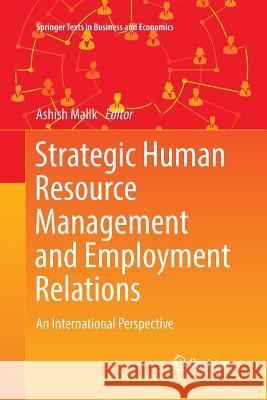Strategic Human Resource Management and Employment Relations: An International Perspective » książka
topmenu
Strategic Human Resource Management and Employment Relations: An International Perspective
ISBN-13: 9789811344060 / Angielski / Miękka / 2019 / 271 str.
Kategorie:
Kategorie BISAC:
Wydawca:
Springer
Seria wydawnicza:
Język:
Angielski
ISBN-13:
9789811344060
Rok wydania:
2019
Wydanie:
Softcover Repri
Numer serii:
000424303
Ilość stron:
271
Waga:
0.40 kg
Wymiary:
23.39 x 15.6 x 1.52
Oprawa:
Miękka
Wolumenów:
01
Dodatkowe informacje:
Wydanie ilustrowane











